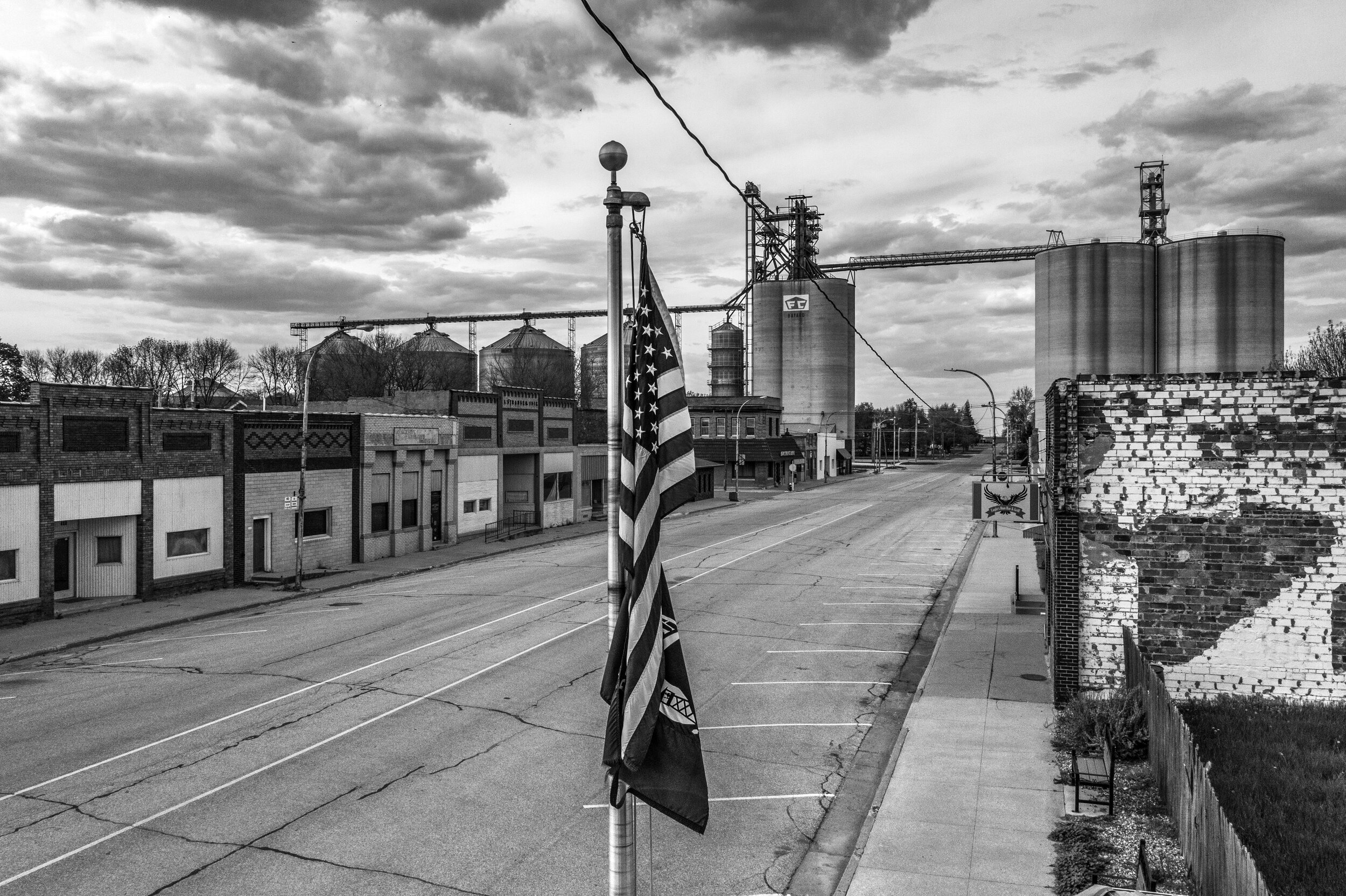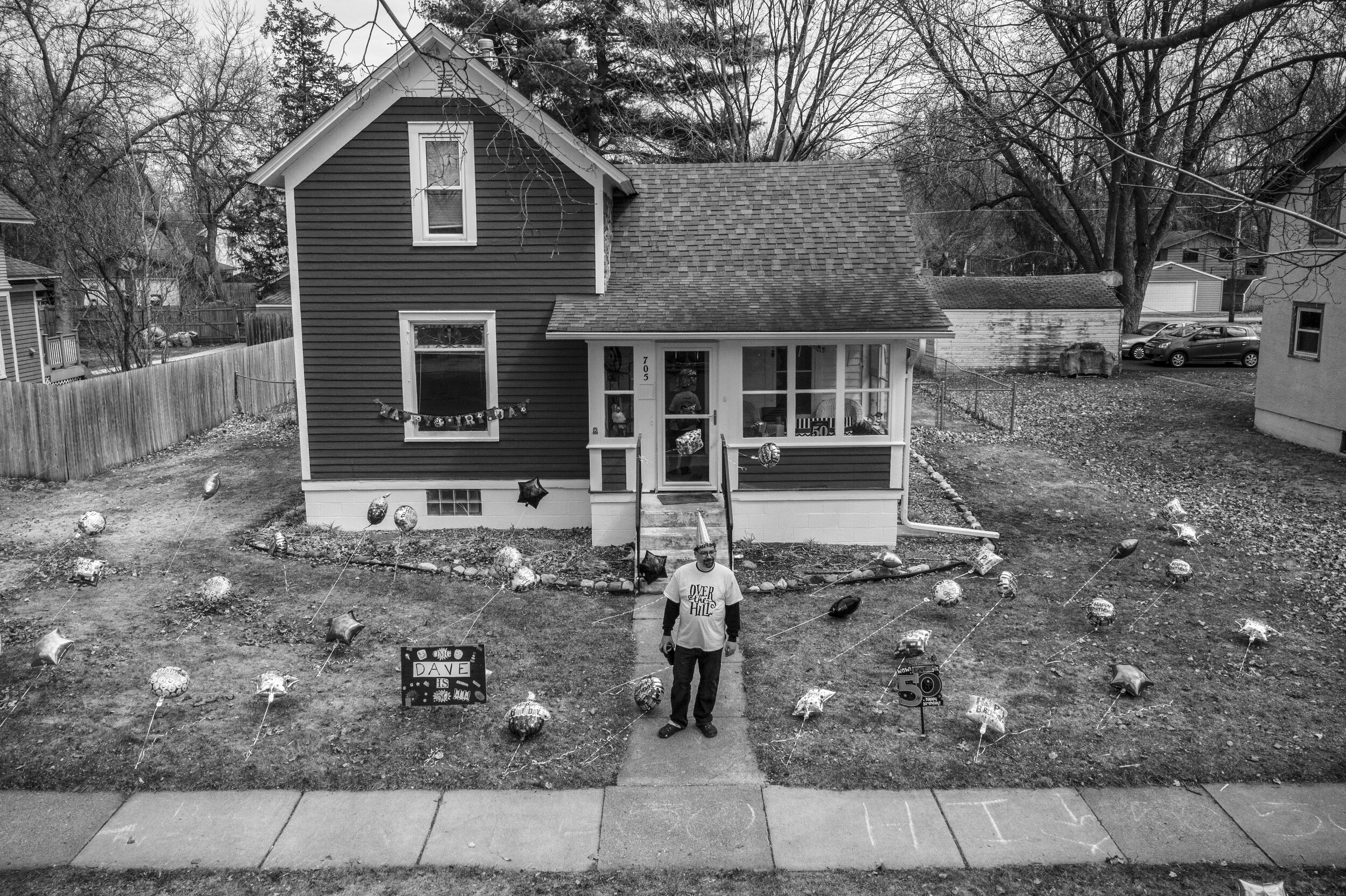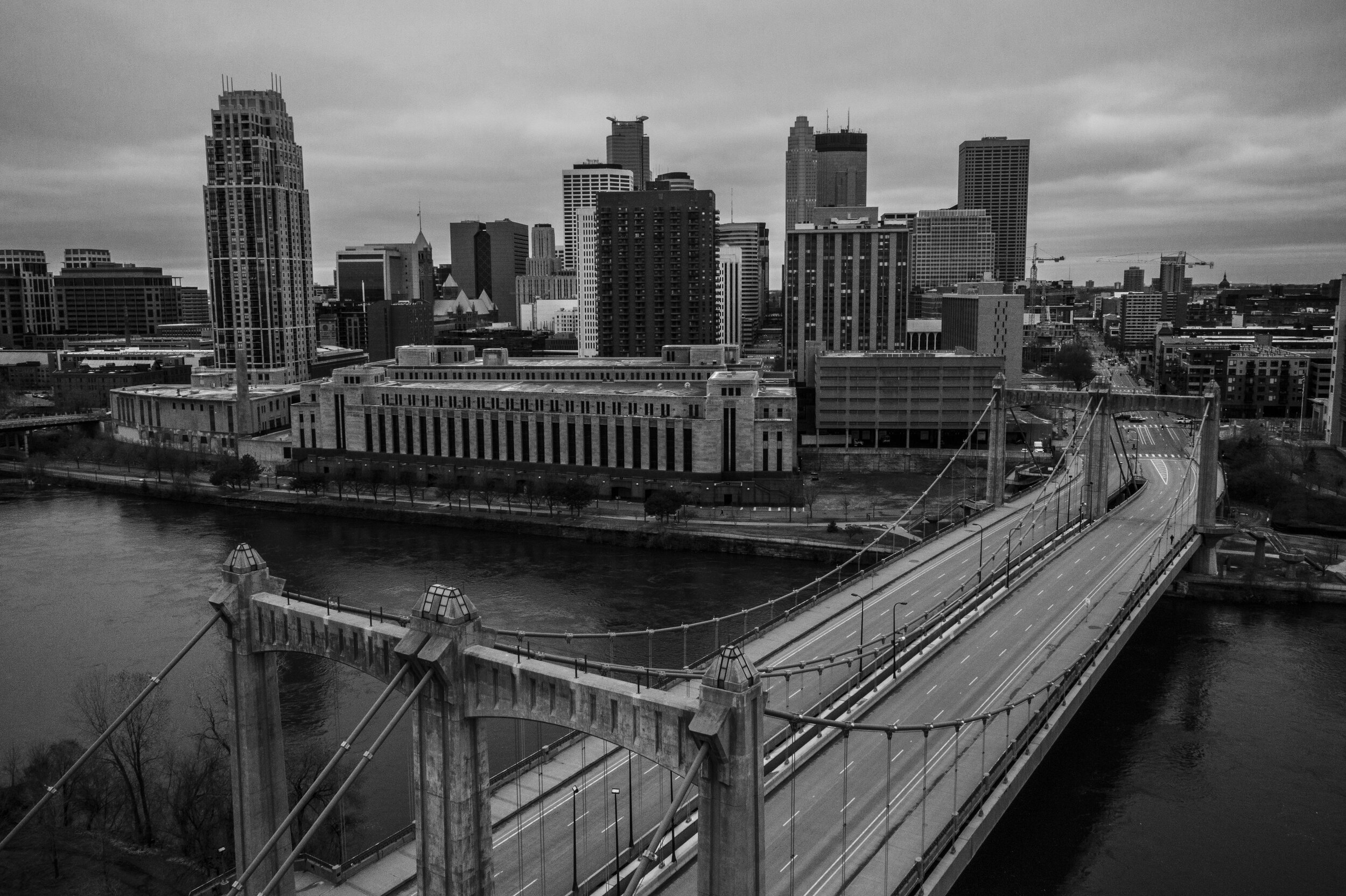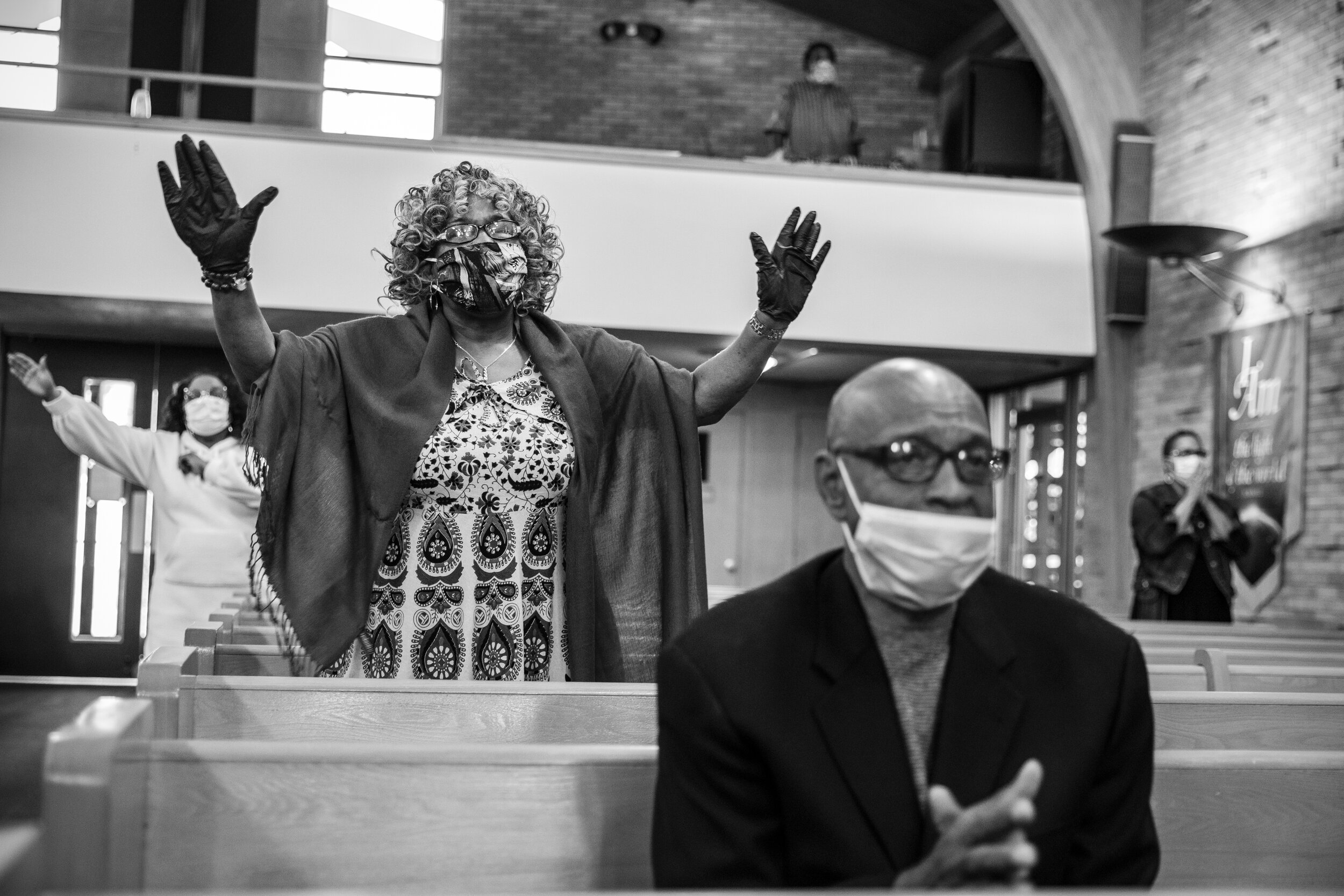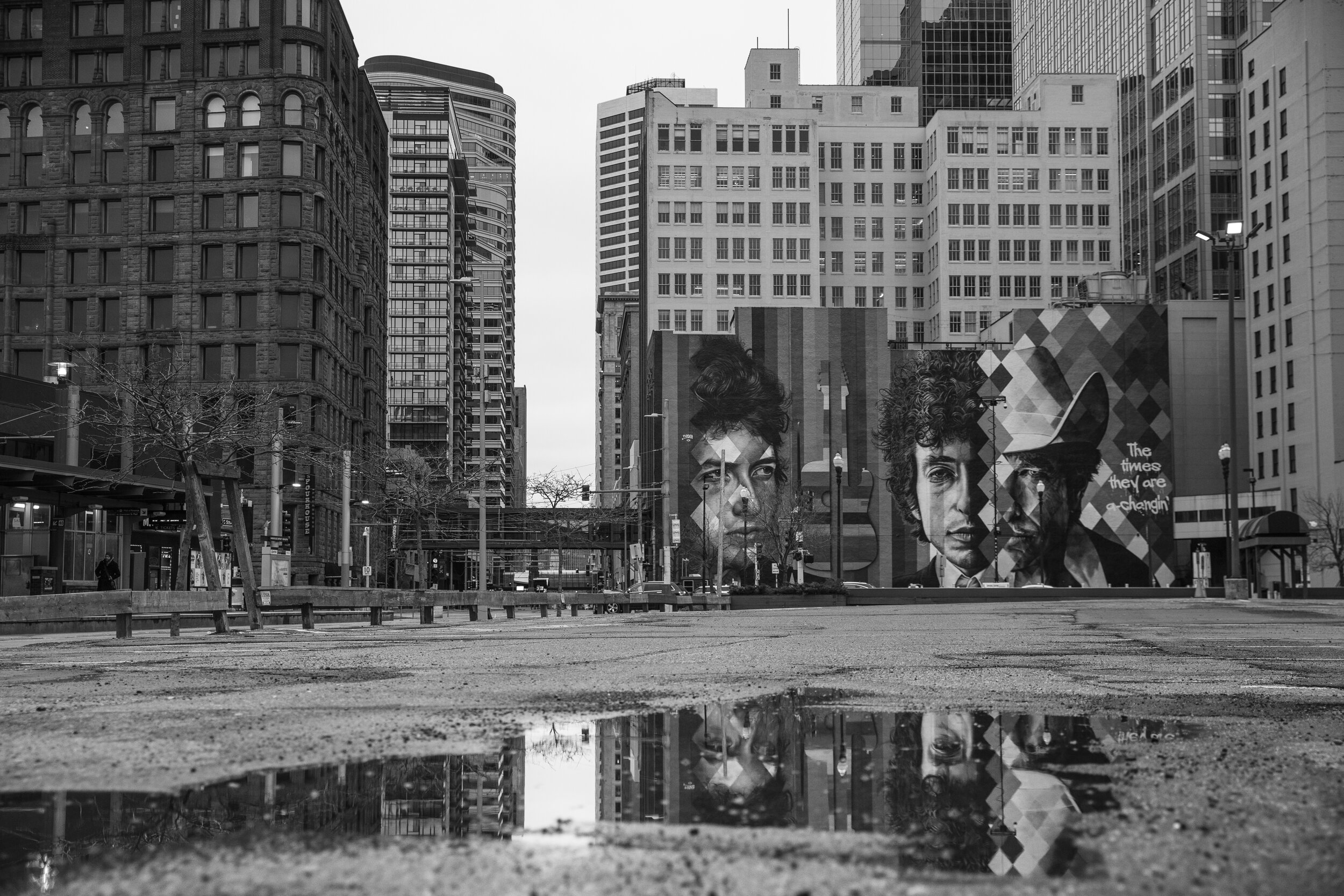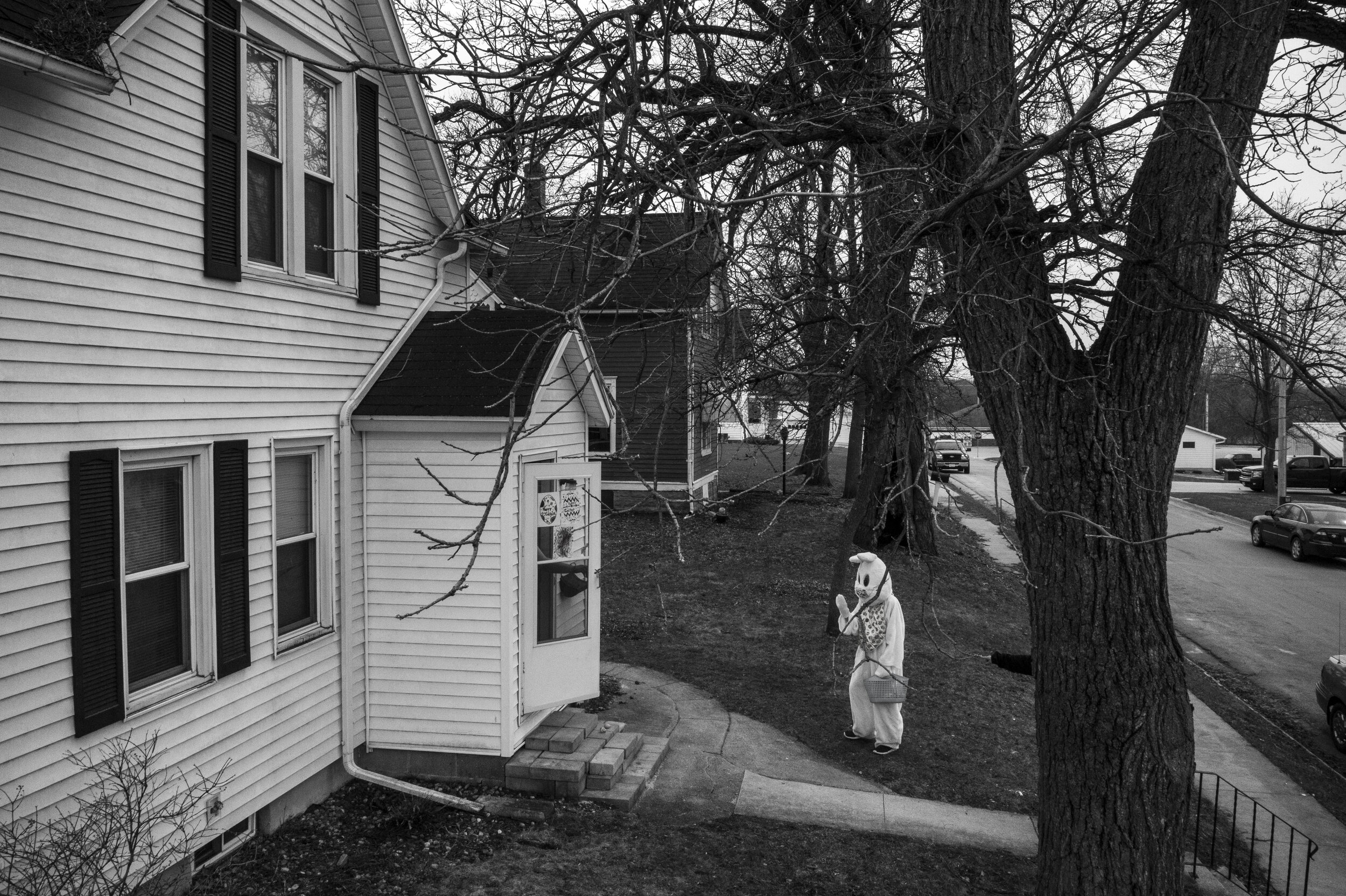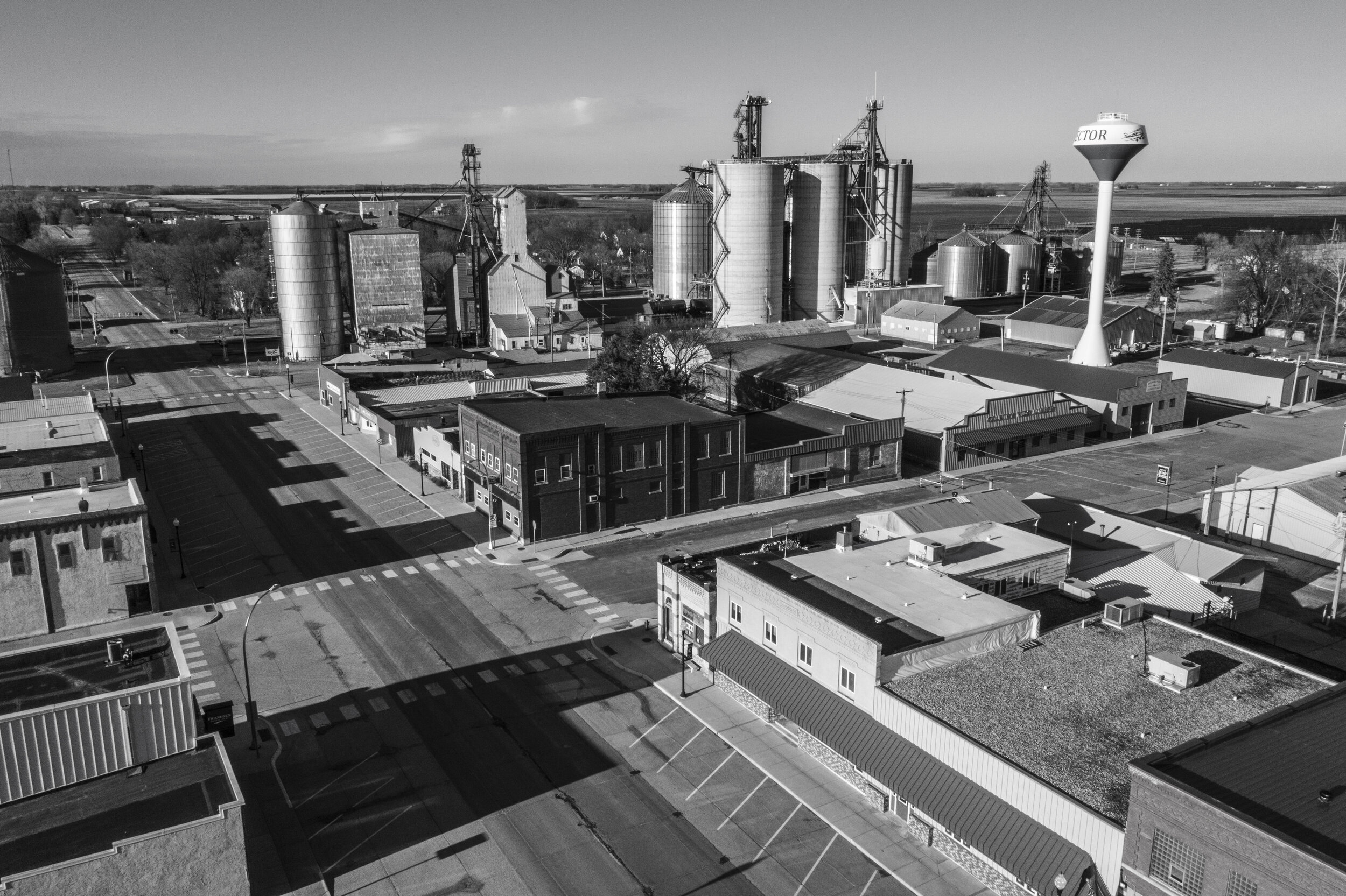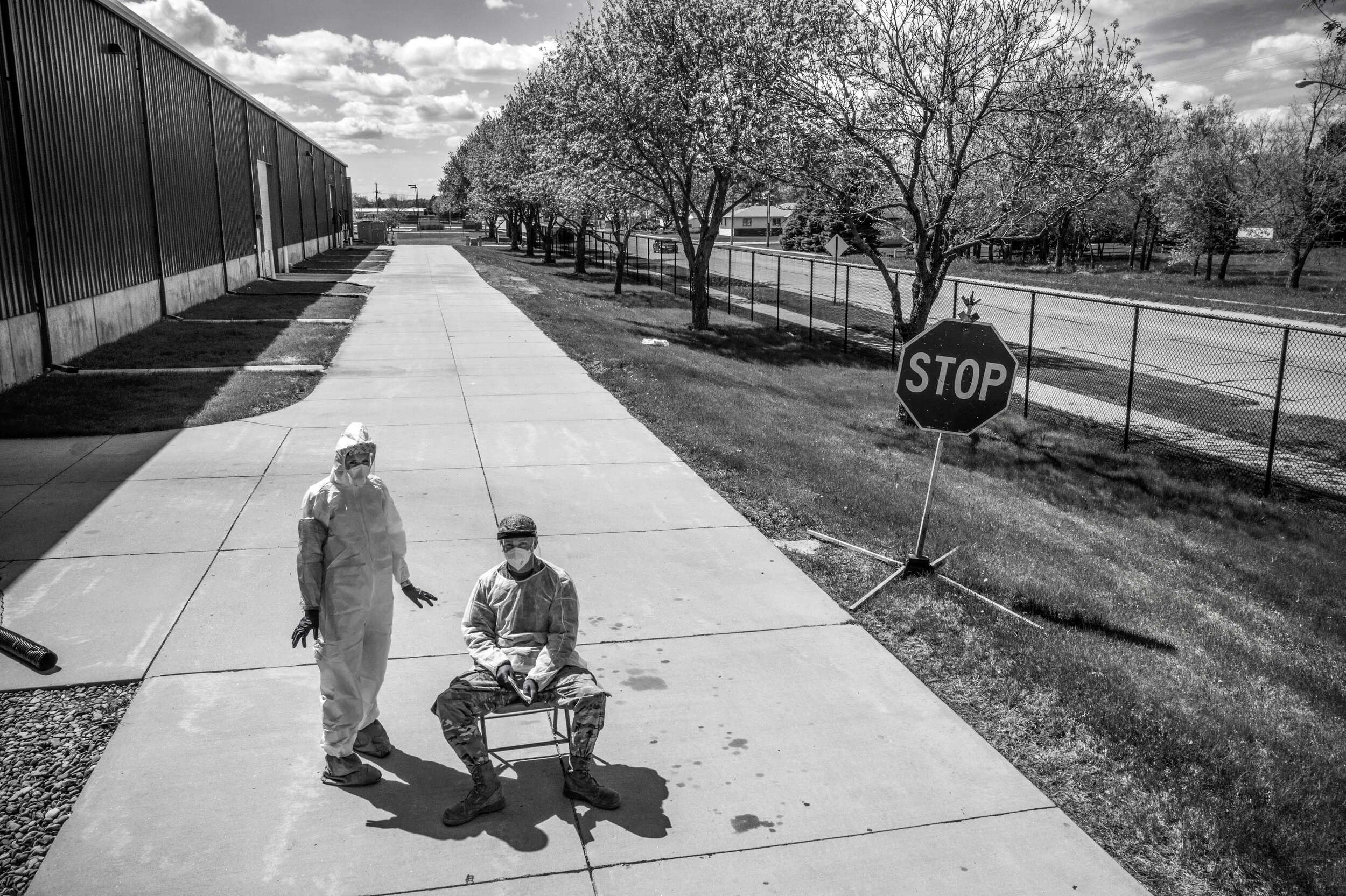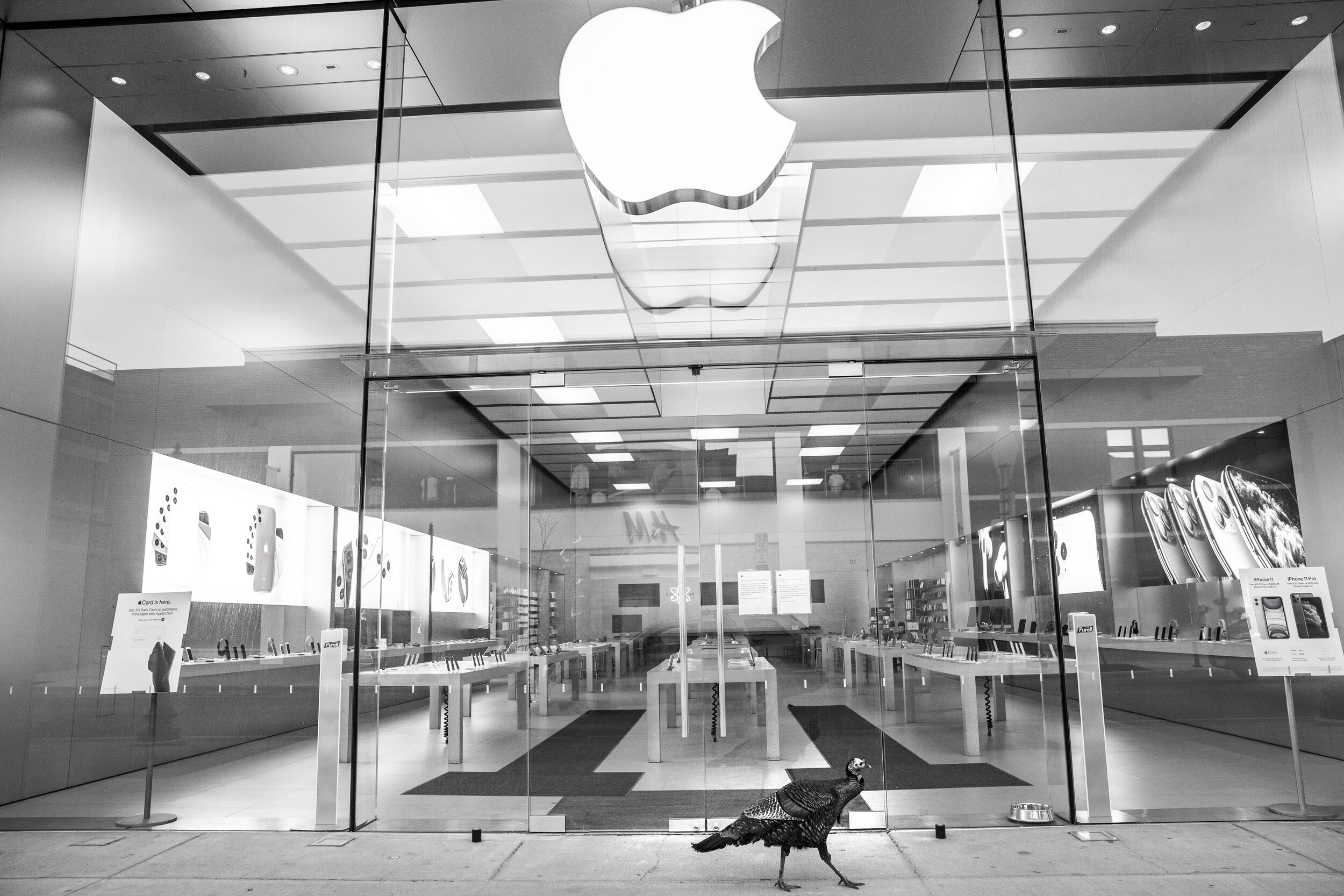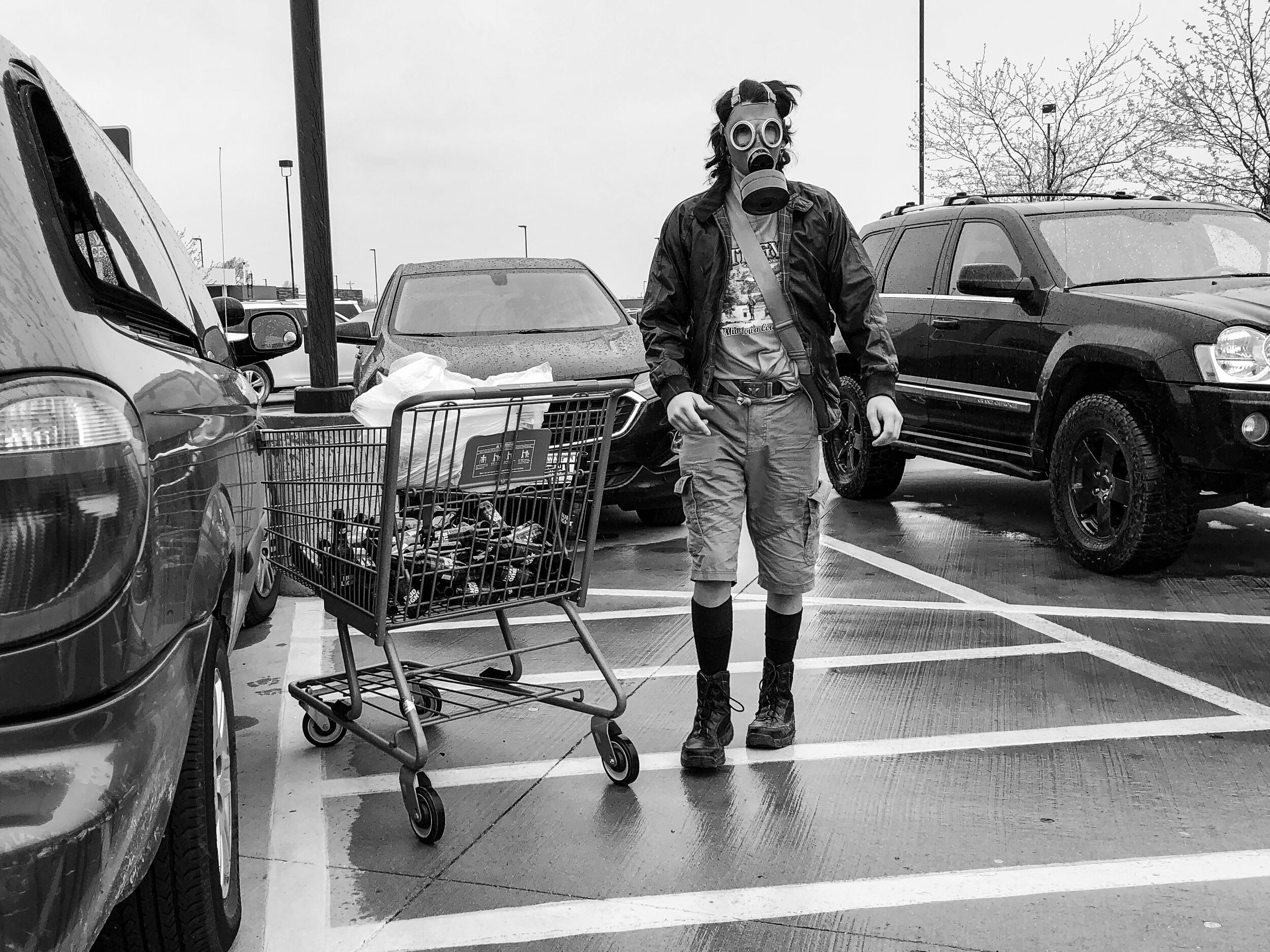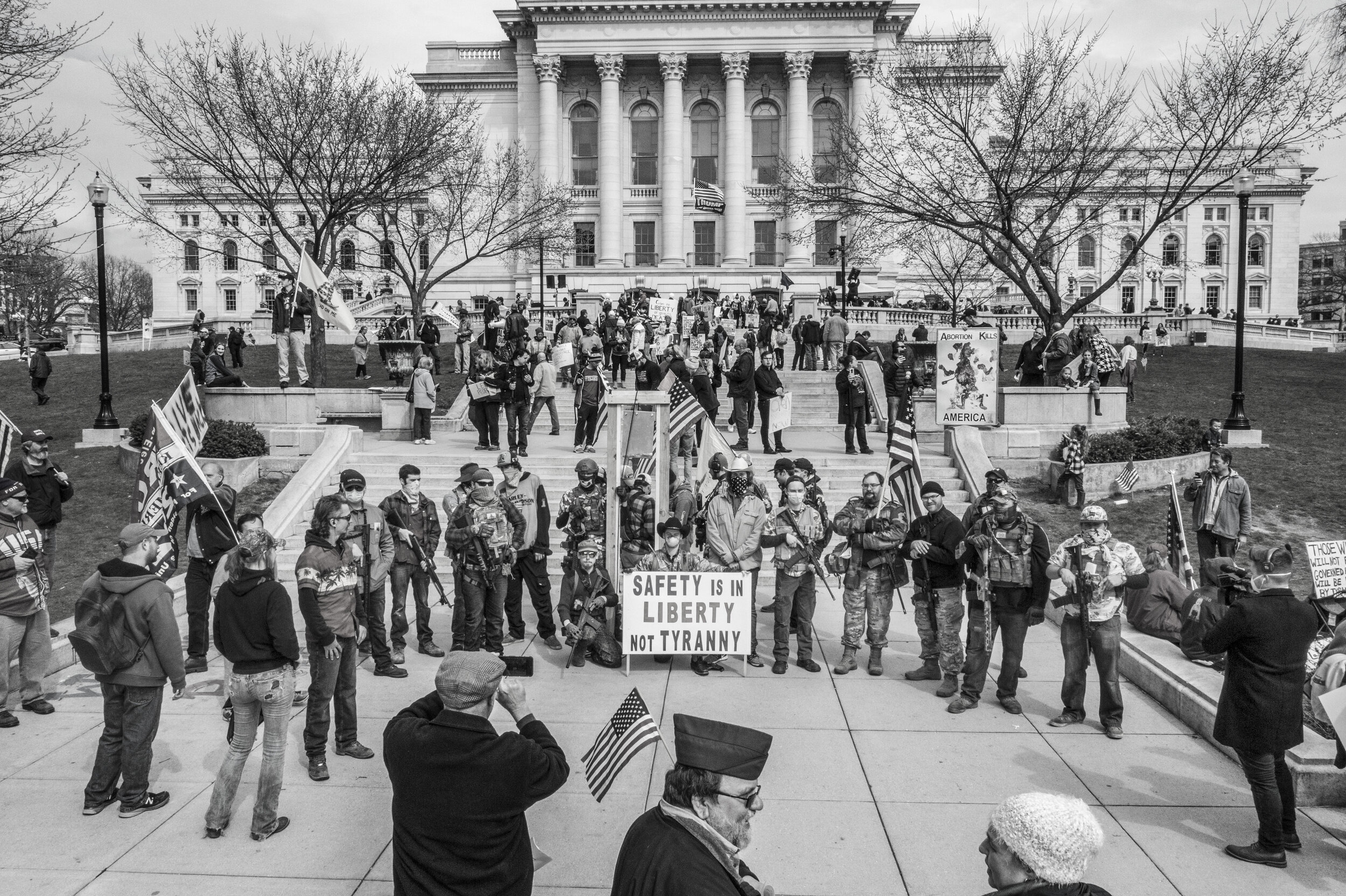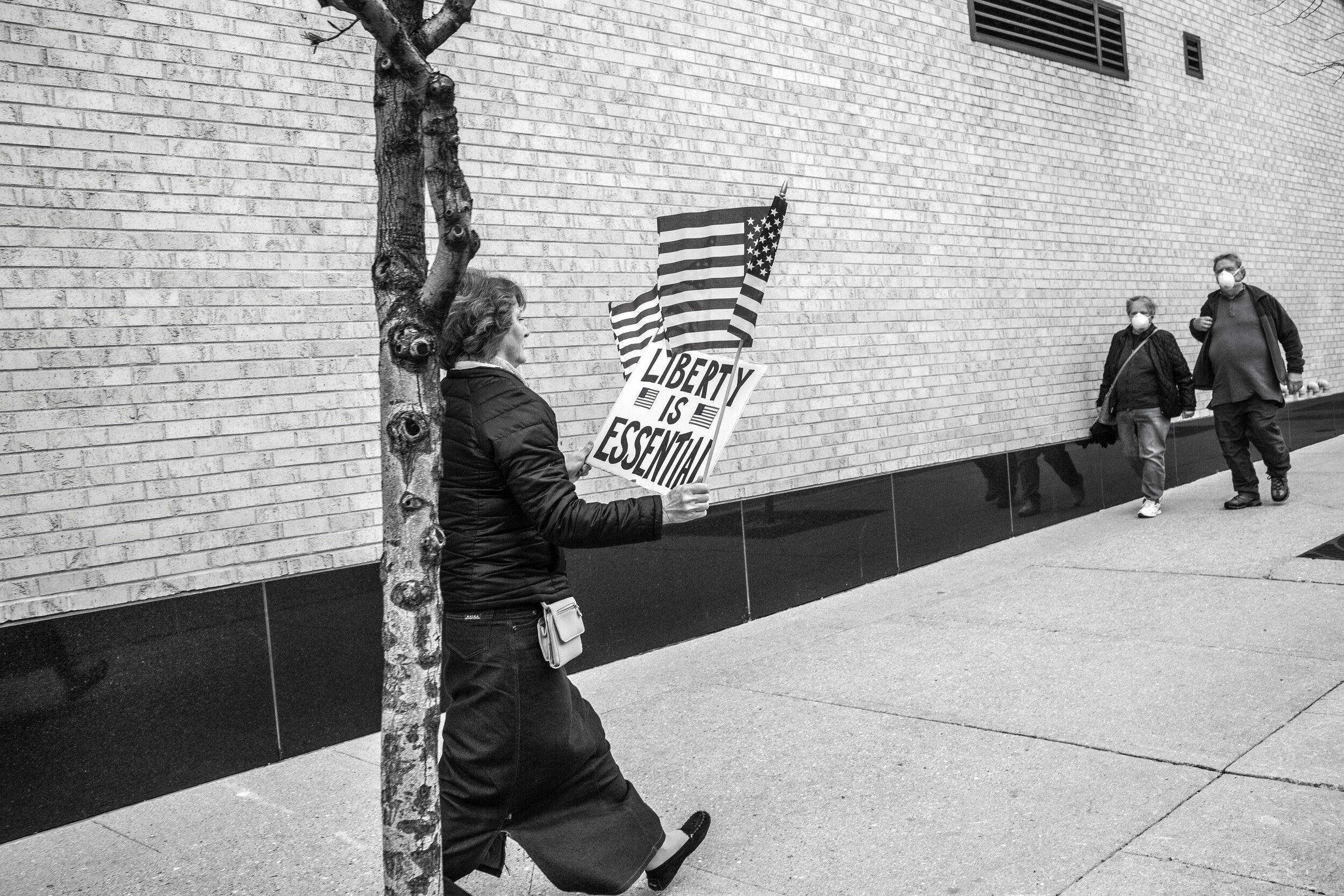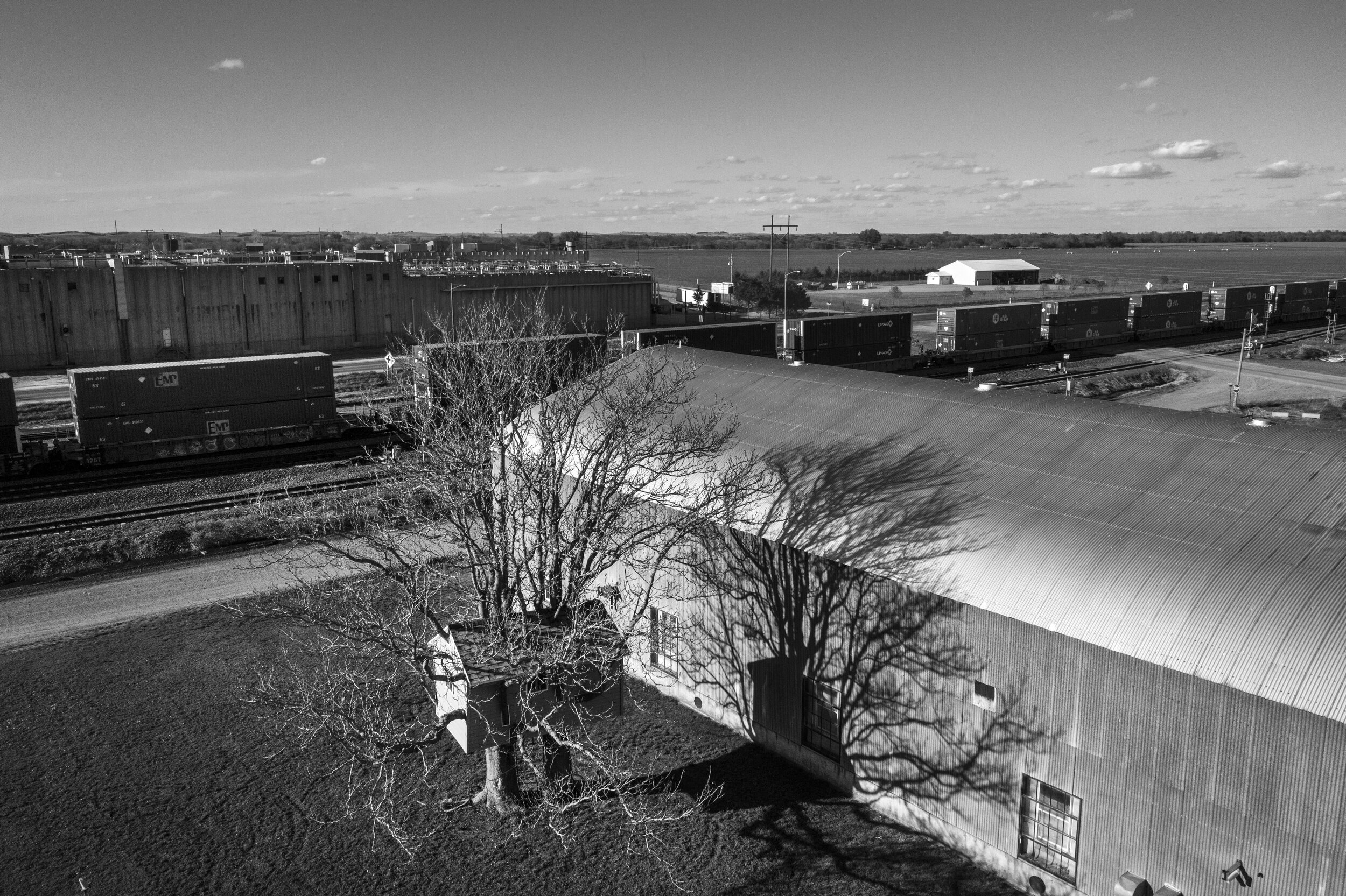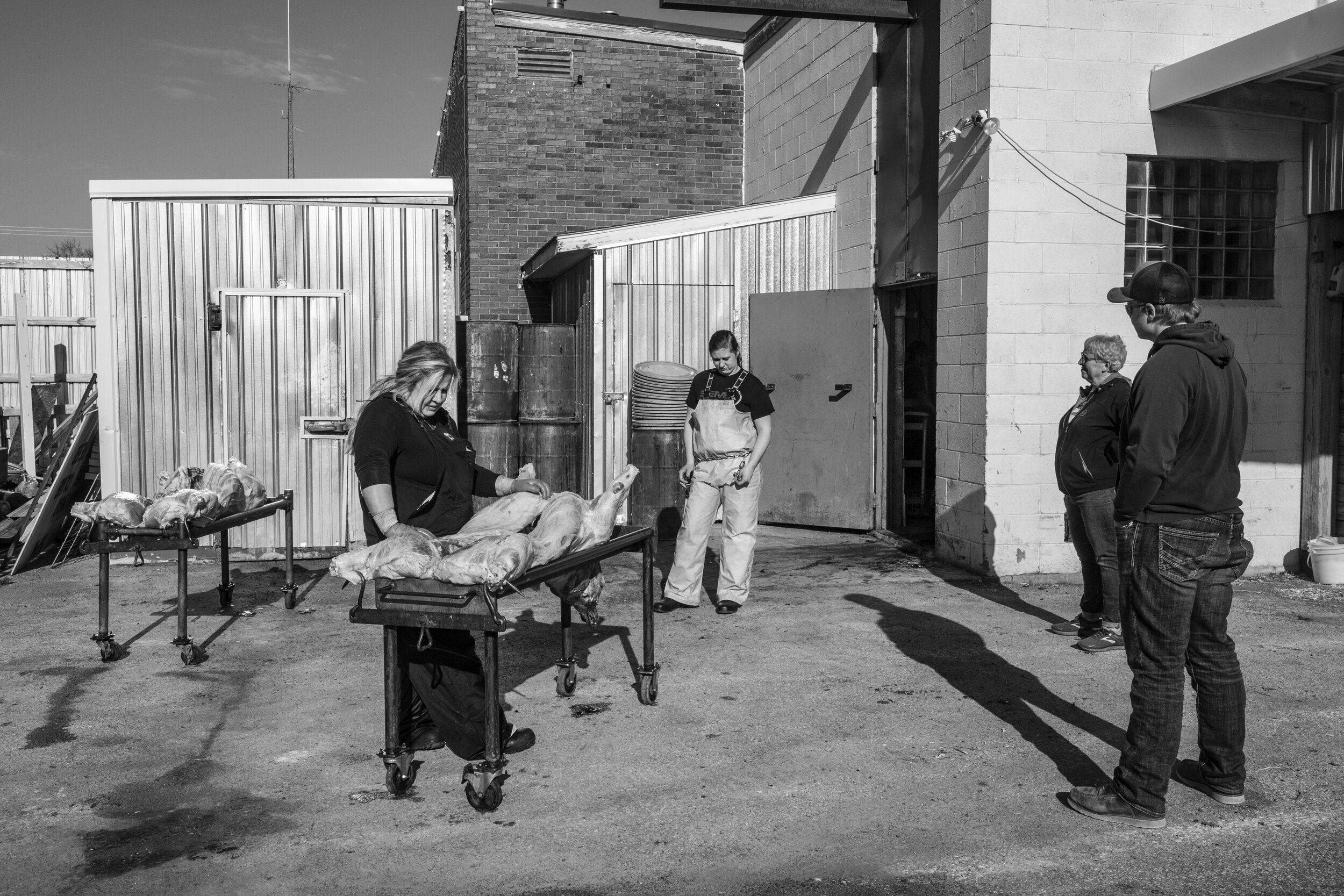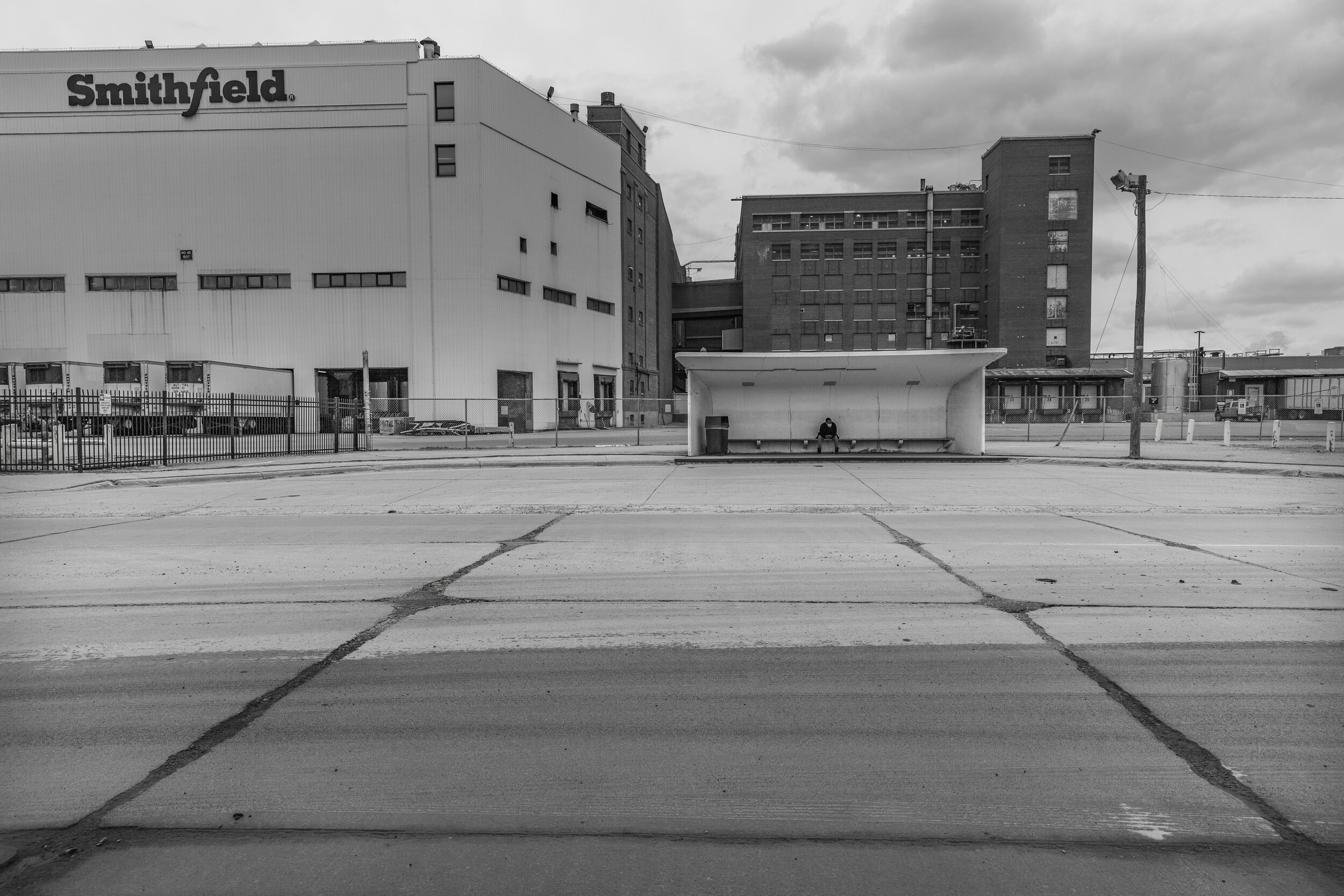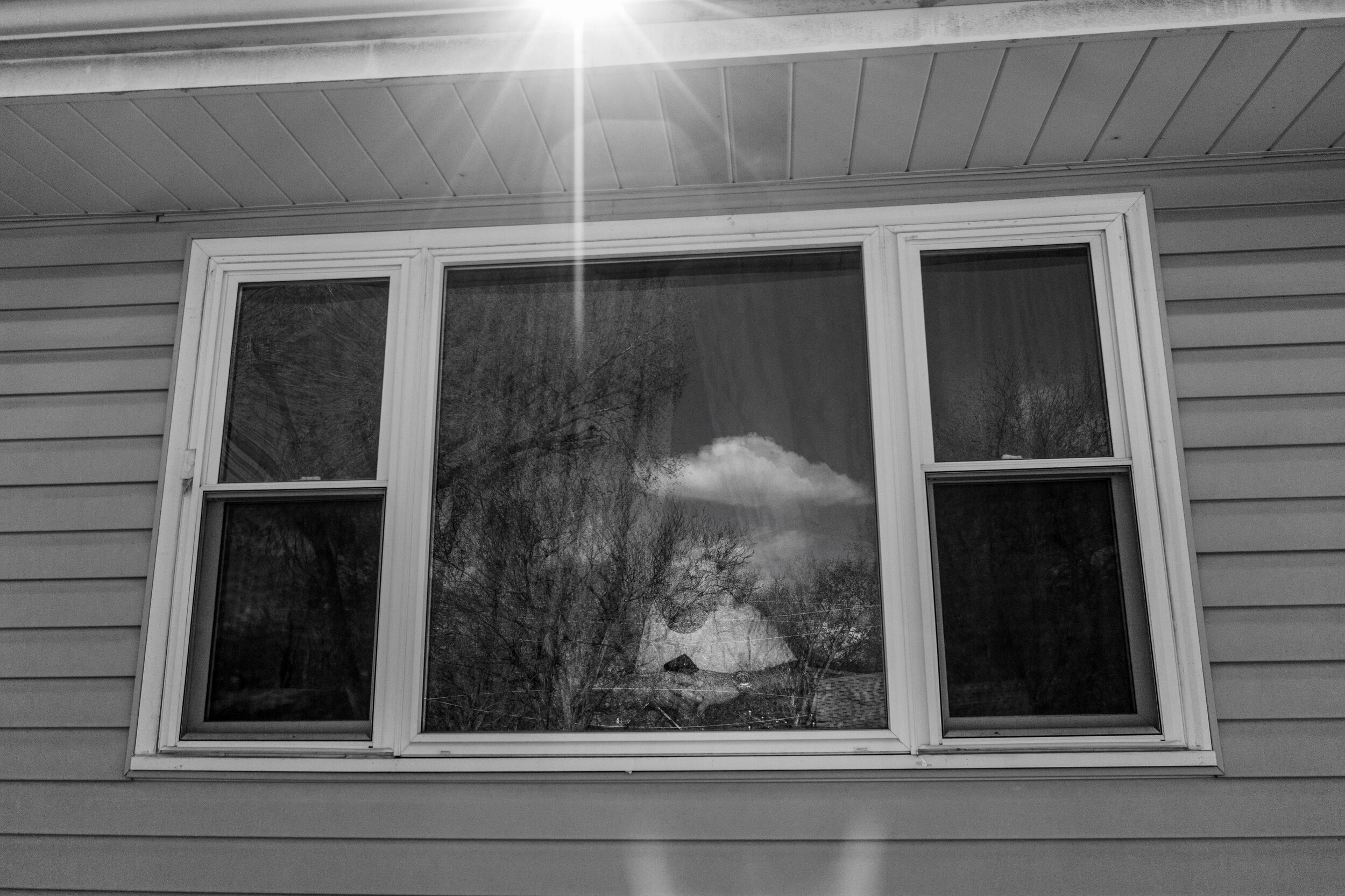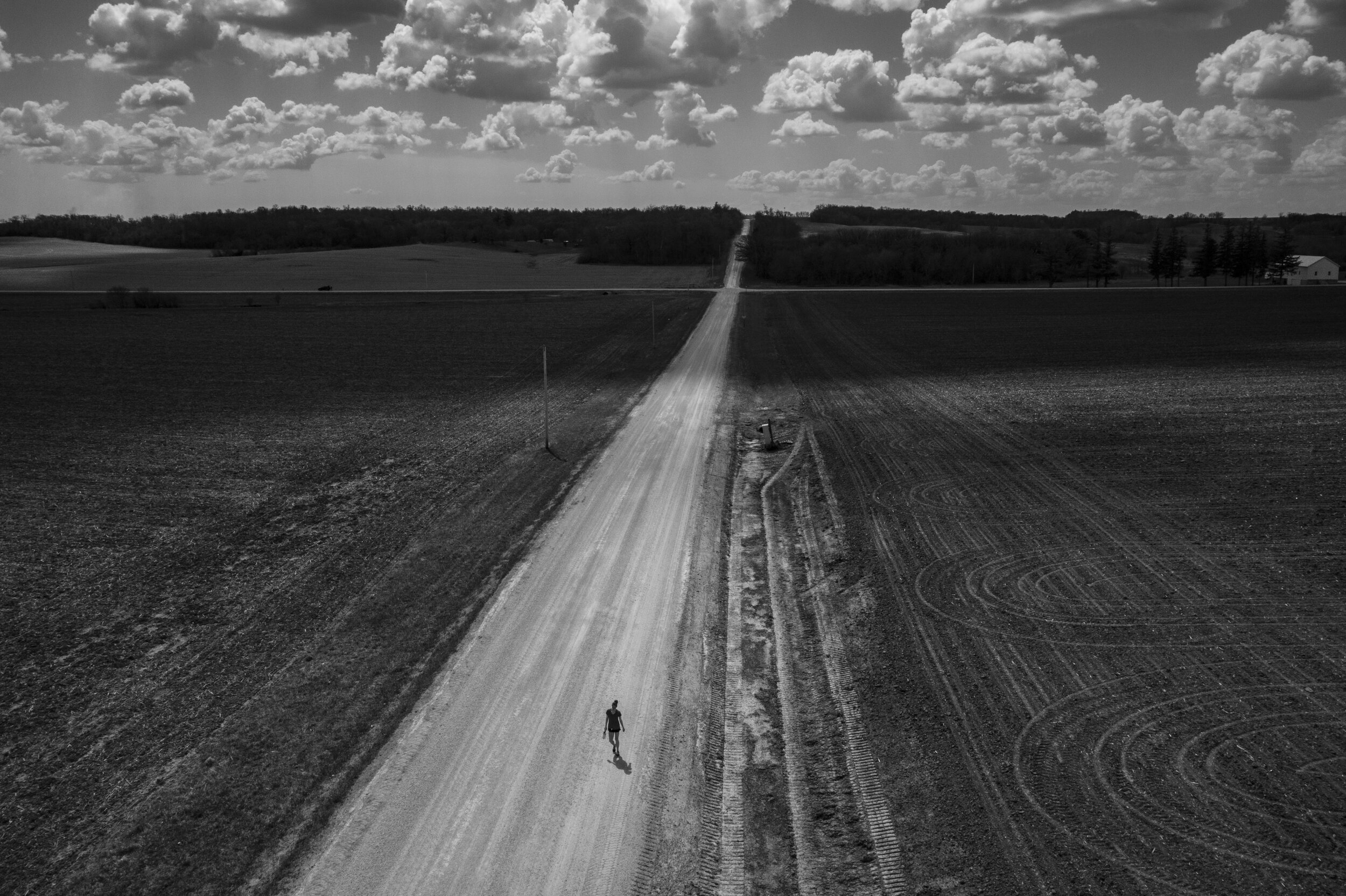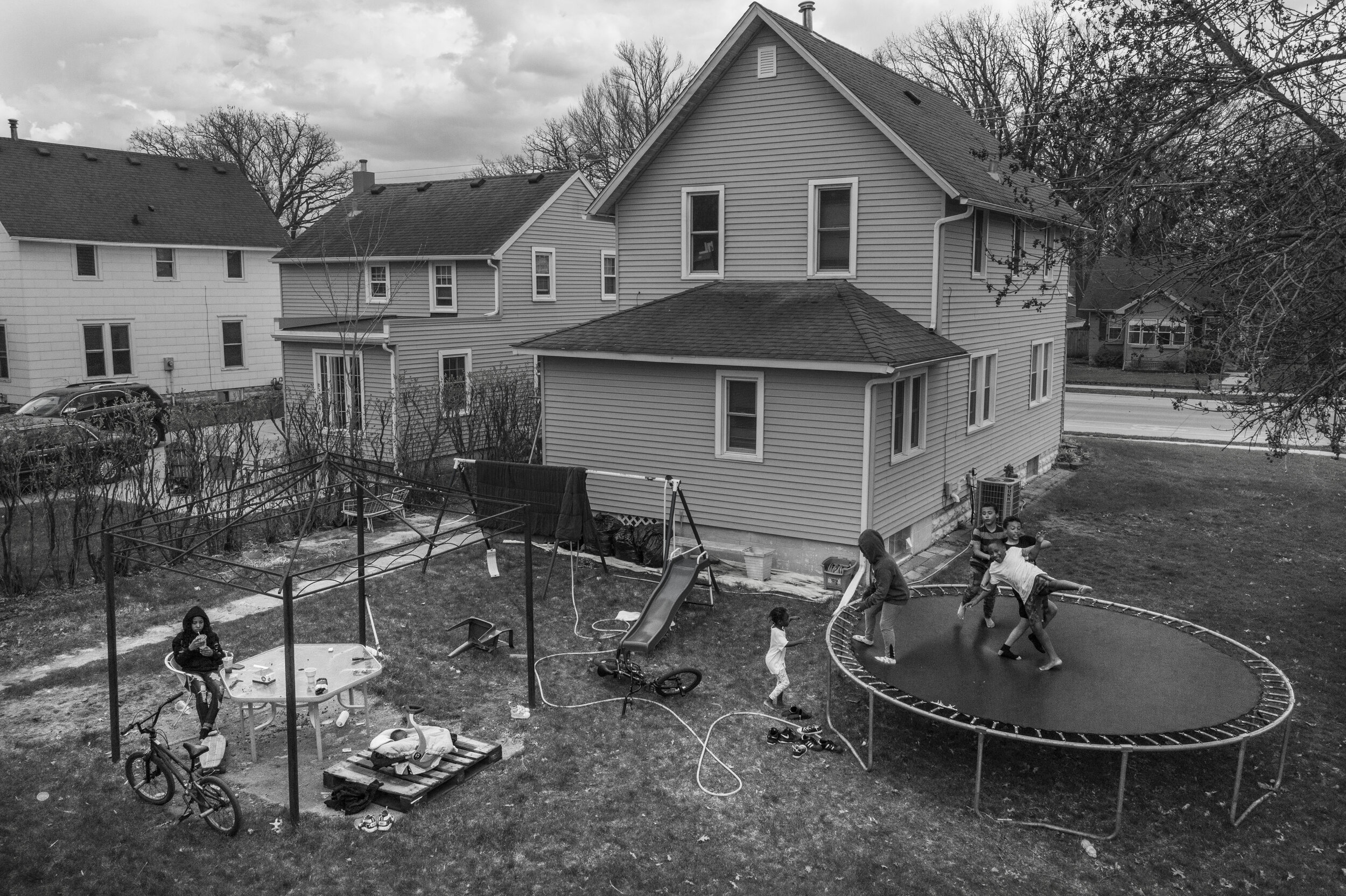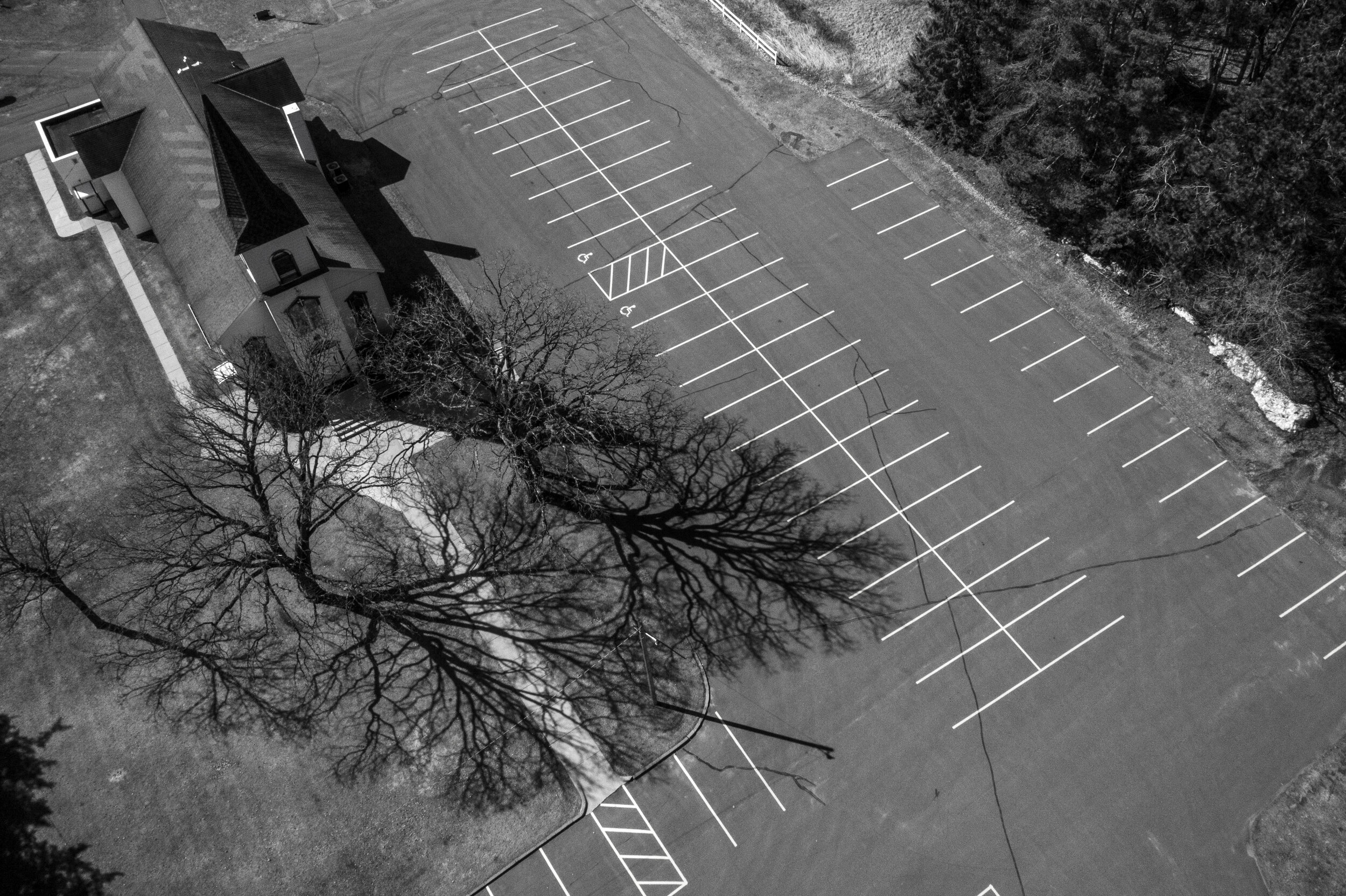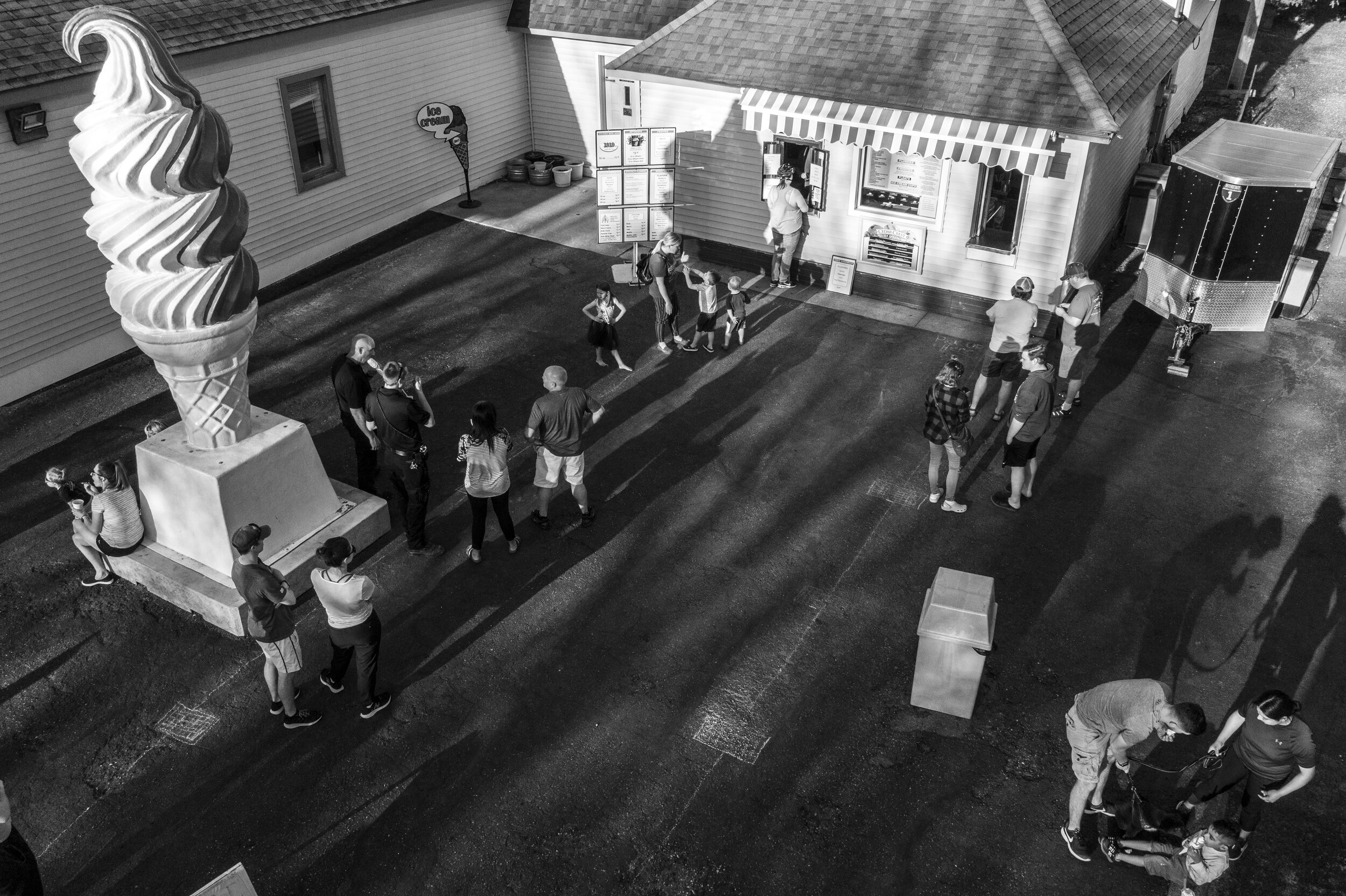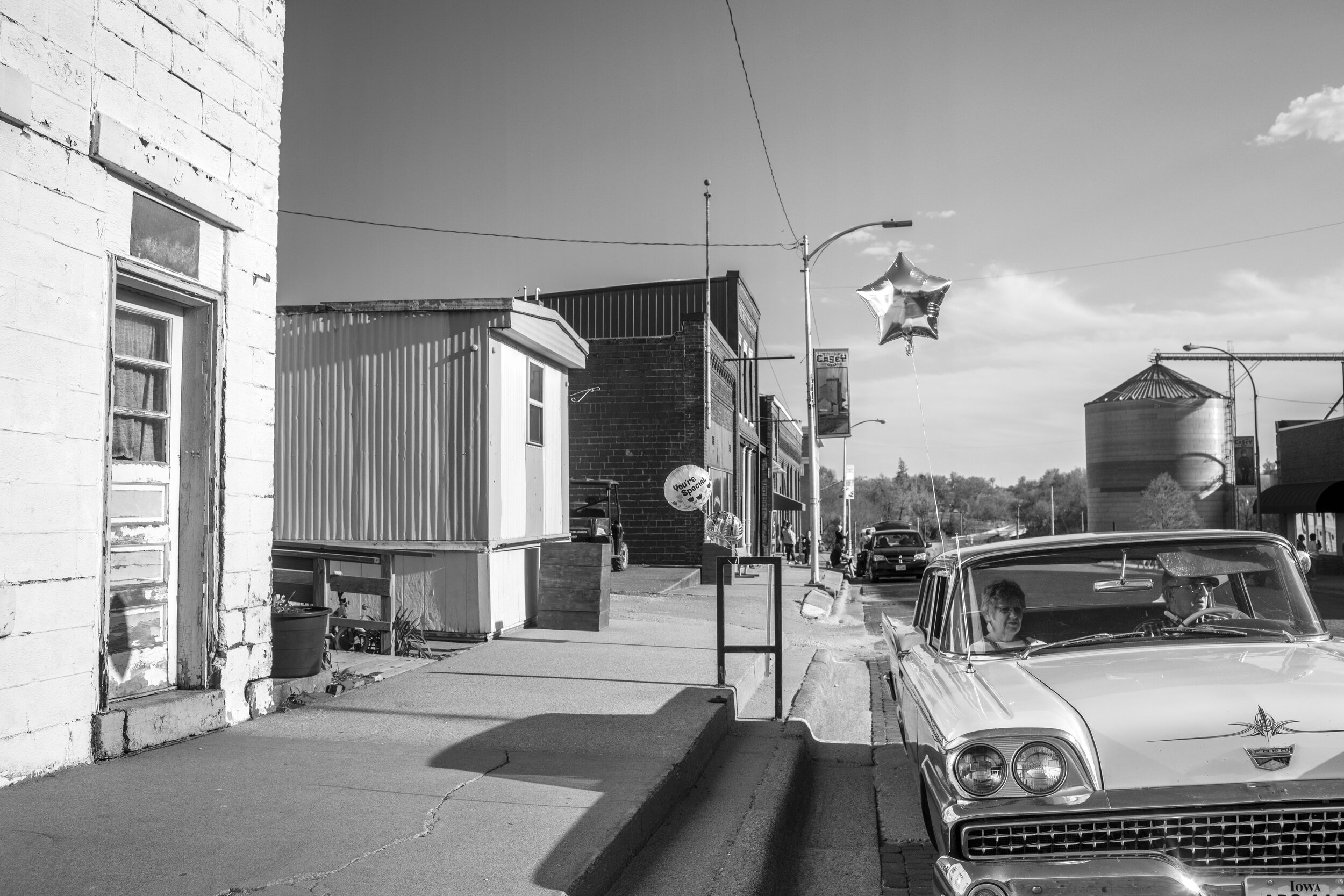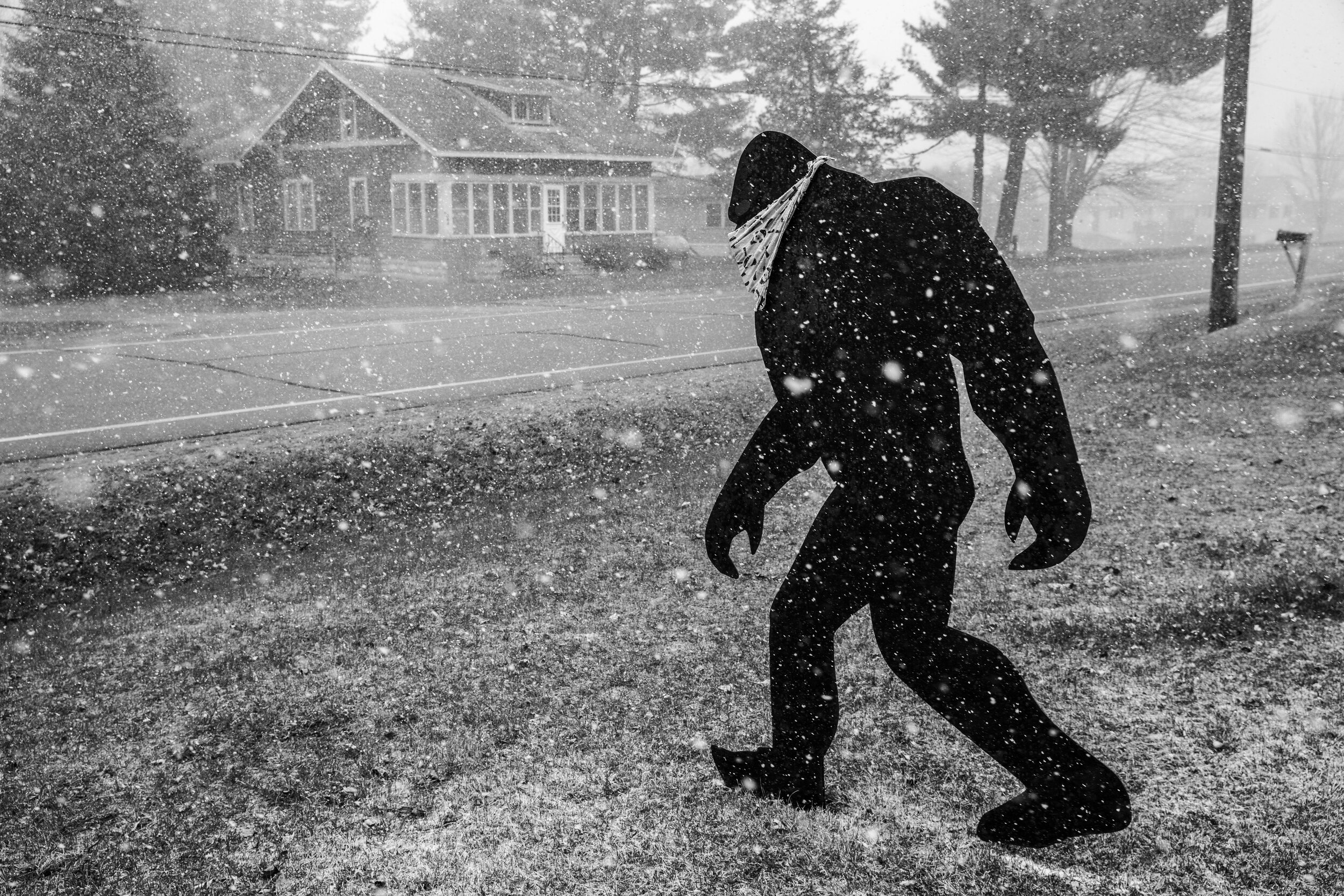The Midwest USA is seldom seen as an epicenter. The so-called flyover states are often overlooked. So during the early days of the Covid-19 pandemic some imagined that our small towns and farm communities might, mercifully, be spared. And compared to the agonies of New York and urban areas elsewhere, maybe we have been. But here too, there have been many heartbreaking lives lost and livelihoods destroyed. Families are struggling, weary, and bracing for what’s still to come.
To outsiders, our main streets may seem sleepy even during normal times. Now they are mostly deserted. The small family-owned businesses, forced to shutter, were vital to these communities, often a half a state away from a major city.
Some of the hardest hit hotspots in America have been in the Heartland, centered in our region’s meat processing plants. Workers, mostly immigrants, have fallen sick, plants have been forced to close, and the family livestock farms providing meat to the plants have begun to struggle, jeopardizing our nation's food security.
Meanwhile in other small towns, cases of the virus have been low but the stay-at-home orders has disrupted people’s livlihoods. With the virus invisible and small town economies on the brink, some of the loudest protests have been on the steps of our state capitals.
With acres of land separating farms and miles of roads between small towns, in certain respects social distancing is a way of life here. Yet in times of great adversity, people are used to going out and getting things done together, shoulder to shoulder.
I was born and grew up in rural Iowa, making my home in Minnesota after 20 years of living abroad as a photojournalist. I was used to running towards a crisis, and I’ve found purpose during this pandemic telling the story in my own back yard.
At the beginning I didn’t know how to cover it - what was safe, or more importantly, what was responsible. So I found my way by covering the midwestern states of Wisconsin, Iowa, Nebraska, and the Dakotas, all states I can reach by road from my home in the Twin Cities in Minnesota.
I go to our biggest cities, Madison and Des Moines, as well as small towns with names painted on the sides of water towers. I make long day trips, wearing all varieties of PPE, and eating only the food and drinks that I bring with me.
I take pictures with my usual cameras, but I also use a drone, the perfect camera to show the scale and bleak emptiness of the landscapes and towns. When I meet people, I’ve moved by a glimpse of their life, adapting to a world with the corona virus, I hold up my drone and ask “My a take your picture with my flying social distance camera”. A common Midwest response, and my favorite, is “Do what you’ve got to do.”
I met Dave Lundberg, standing in his front yard in Farmington, Minnesota wearing a party hat and an “Over the Hill” t-shirt, surrounded by balloons and birthday signs, to celebrate his 50th. During the Minnesota state-wide Covid-19 stay at home order his family-decorated the yard and Lundberg greeted friends and strangers passing by, honking their car horns.
Out driving on Easter weekend I met Treize VanHeiden, dressed as a mask-wearing Easter Bunny, traveling around the town of Lake Mills, Iowa with his mom, Ona VanHeiden, to deliver Girl Scout cookies at a social distance. Ona normally organizes an Easter egg hunt, but when the 6th annual event was cancelled in 2020 to protect against the spread of Covid-19, she and her son tried to find a responsible, alternative way to celebrate the holiday.
As the school year drew to a close, I came across Judi and Bob Zimmerline sitting in the front seat of their silver balloon-decorated classic car as they waited to lead a procession for the 14 Casey, Iowa class of 2020 high school graduates. Family and friends held a small social-distance ceremony and car parade for the graduation seniors who were not allowed to hold the usual ceremonies because of Covid-19. As we spoke, six feet apart on Main Street, we discovered that Judi and my father were cousins.
At times, along the road, I offered my phone number or email so that people could later, more safely share their stories with me. I received moving letters from many describing their lost jobs, struggles with their childrens' homeschooling, fears of losing their farms or feeding their families. And yet, in spite of the difficulties, they often expressed an optimistic outlook for our uncertain future, demonstrating a resilience I admire here in the Midwest.
